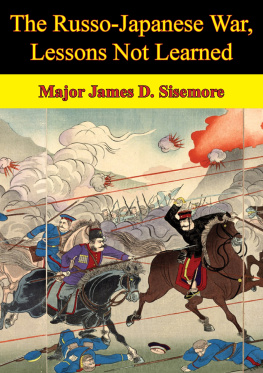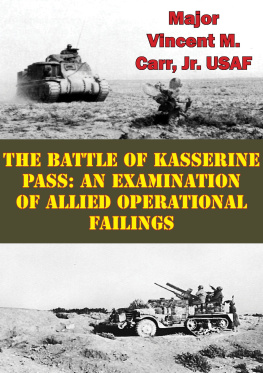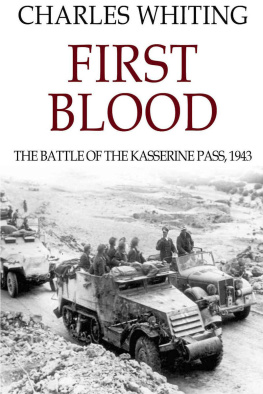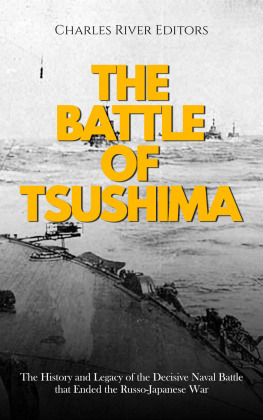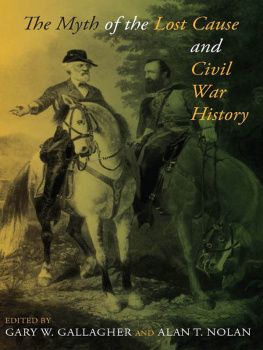
This edition is published by PICKLE PARTNERS PUBLISHINGwww.picklepartnerspublishing.com
To join our mailing list for new titles or for issues with our books picklepublishing@gmail.com
Or on Facebook
Text originally published in 1985 under the same title.
Pickle Partners Publishing 2014, all rights reserved. No part of this publication may be reproduced, stored in a retrieval system or transmitted by any means, electrical, mechanical or otherwise without the written permission of the copyright holder.
Publishers Note
Although in most cases we have retained the Authors original spelling and grammar to authentically reproduce the work of the Author and the original intent of such material, some additional notes and clarifications have been added for the modern readers benefit.
We have also made every effort to include all maps and illustrations of the original edition the limitations of formatting do not allow of including larger maps, we will upload as many of these maps as possible.
Kasserine: The Myth and Its Warning for Airland Battle Operations
By
Alan M. Russo, Lieutenant Colonel, USA
TABLE OF CONTENTS
Contents
TABLE OF CONTENTS
REQUEST FROM THE PUBLISHER
ABSTRACT
The paper traces the history of air and ground forces during the February 1943 battle of the Kasserine Pass. It briefly outlines the state of training of the Army and its Air Corps and their procedures for battle coordination. The report highlights the antagonisms between air and ground advocateseach attempting to wrest control of air-ground coordination responsibilitiesand shows that these antagonisms coupled with the air advocates desire for self-determination of air power led to centralized control of tactical air power under the guise of lessons learned in battle at Kasserine.
The paper shows that the close coordination and affiliation developed between air and land forces in World War II apparently has dissipated, and that this dissipation may cause a lack of effective air support to ground forces fighting on the modern battlefield. It suggests that the Air Force is not sufficiently concerned with how, and to what effect its support of the Army will be conducted.
BIOGRAPHICAL SKETCH
Lieutenant Colonel Alan M. Russo (U.S., United States Military Academy; M.S., Rensselaer Polytechnic Institute) has served in the United States Army as an Infantry Officer and as an Aviator. He was a platoon leader with the 82nd Airborne Division in the Dominican Republic, and a section leader, platoon leader, and company executive officer flying 0-1 (Birddog) and AH-1 (Cobra) aircraft in Vietnam with the 1st Cavalry Division (Airmobile). Much of his experience in air-ground coordination was learned while commanding a combat aviation battalion in the Federal Republic of Germany. He is a graduate of the Armys Command and General Staff College. He holds the Silver Star, Distinguished Flying Cross, and the Air Medal. Lieutenant Colonel Russo is a graduate of the Air War College, class of 1985.
CHAPTER I INTRODUCTION
The battles fought by United States forces during the North African Campaign of 1942 and 1943, particularly the Battle for the Kasserine Pass of February 1943, were a breaking and testing ground for much of the employment doctrine of those forces during the remainder of the Second World War. One key aspect of that evolving doctrineand one which persists to this dayinvolves the command and control of air power: that all elements of air power should be centrally controlled by an air officer serving as the air component commander for the theater commander.
I will show that such a doctrine for control of air power was not the result of lessons learned during the fight for the Kasserine Pass as the United States Air Force insists. I will suggest that centralized control was a basic tenet of air power advocates of the era and that the announced lesson learned for command and control was the result of deeply held convictions which influenced their view of contemporary events. Even more significantly, I will argue that such centralized control of tactical air power may prove to be efficient but ineffective should the United States Army be required to fight a major land campaign in the future in accordance with its AirLand Battle operational doctrine.
To avoid confusion of function or qualitative difference, my thesis and its discussion and analysis centers only on tactical air operations and tactical air support as defined in JCS Publication 1: i.e., air operations and employment of air power conducted in coordination with and for the support of land forces. {1}
In order to support this thesis, a summary examination of the Kasserine battle will be presented. This examination will include events prior to and subsequent to that battle. Lessons drawn at the time pertaining to command and control of tactical air power will be examined.
An introduction to and summary of the Armys AirLand Battle doctrine will be presented to illustrate the Armys view of the nature of a future land campaign. An analysis of that doctrine vis--vis. the World War II lessons learned will then be presented. Included will be some personal observations on the nature of the command and control of army aviation operations based on my three years in command of an army combat aviation battalion in Germany. I will then form conclusions based on the historical perspective presented, the expected nature of a future land war and the Armys plan to conduct it, and the analysis.
In order to constrain the scope within the confines of this papers thesis, the command, control, and application of strategic air power will not be examined. There are clear differences in application of tactical and strategic air forces and it follows with but a cursory mental exercise that the methods to command and control one do not necessarily apply to the other but they may do so.
As James A. Huston noted in 1950, Perhaps more than in most other fields of current interest, persons in military affairs appeal to history for proof of the soundness of doctrine or the correctness of procedures. A great deal of care is necessary in interpreting evidence offered for far-reaching conclusions. Per-haps in no other field is it easier for one to find whatever he may be looking for. {2} This is exactly the case existing today in the application of basic doctrine for the control of tactical air power.
CHAPTER II THE BATTLE FOR THE KASSERINE PASS
After the defeat of Rommel in Egypt in the late months of 1942, the Allied Armies began the campaign to eject the Axis from North Africa. Montgomerys Eighth Army moved westward through Egypt and Libya while the British First Army commander General Kenneth A. N. Anderson led the Allies eastward from Algiers.
The terrain in central Tunisia is characterized by highly eroded rocky plateaus cut sharply by streambeds flowing from the northwest to the southeast. These plateaus, with mountains rising to add to the regions stark relief, sharply fall to near-sea level desert plains. Sharp passes link the plateau heights to the coastal plains. The three critical defiles of Tunisia which facilitate movement across the region are at Sbiba, Dernaia, and Kasserine.
The First Army suffered significant disadvantages which proved costly in the ensuing battles. Command and control was made particularly difficult due to the Allies practice of subordinating American combat commands (brigade-equivalent maneuver commands of World War II Army divisions) to the major commands of other nationalities. French allegiance was transitory and vacillating due to the political climate between the Free French and the Vichy French. American forces were generally untested and had never been engaged in night combat. The encounters with




